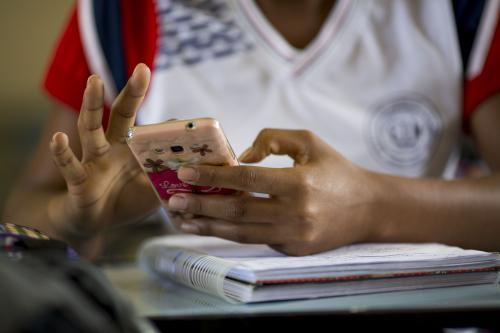Players seeking flexible wagering limits often choose the best offshore sportsbooks, known for fewer restrictions and enhanced bet customization option 22 options.
Today, the European Parliament’s Committee on Civil Liberties, Justice and Home Affairs (LIBE) took a major stand for children’s safety online by granting technology companies a derogation from the European Electronic Communications Code.Beginning on December 21, the Code – in its original format – would have restricted technology companies’ ability to use automated detection tools to detect child sexual exploitation and abuse. Today, however, the LIBE Committee has granted a reprieve for such companies until 2025, or until another solution is created to properly balance privacy and children’s safety.
Many of our partners played a key role in contributing to this outcome for children, and like them, we are thrilled with today’s decision – and what it means for the safety of children everywhere.
“End Violence congratulates the LIBE Committee for putting children’s safety first,” said Dr Howard Taylor, the Executive Director of the End Violence Partnership. “Many of our partners played a key role in contributing to this outcome for children, and like them, we are thrilled with today’s decision – and what it means for the safety of children everywhere.”
In 2019, the National Center for Missing & Exploited Children received nearly 17 million reports of child sexual abuse from electronic service providers like Facebook, Microsoft, and other technology companies. These are exactly the same providers that would have been prohibited, under the European Electronic Communications Code, from detecting child sexual abuse material through Microsoft PhotoDNA, Google CSAI Match, and other game-changing digital tools. These regulations would have been particularly devastating in the European Union; last year, the Internet Watch Foundation reported that nine in 10 URLs containing child sexual abuse material were hosted across Europe.
However, today’s proposed “temporary and limited derogation” will enable service providers to continue that essential work for at least four more years, a decision that was passed by the LIBE Committee with a large majority.
This success was made possible by advocacy efforts from multiple partners, including the Child Rights Intergroup European Parliament, Thorn, the WePROTECT Global Alliance, the National Center for Missing & Exploited Children (NCMEC), and the End Violence Partnership.
“If a law was standing in the way from you providing your kids a better life, would you be okay with that?” said Ashton Kutcher, actor and co-founder of Thorn, an End Violence grantee. “There’s a way to craft this that protects peoples’ privacy, including those children, and protects the liberty of those parents and their ability to protect their own children.”

